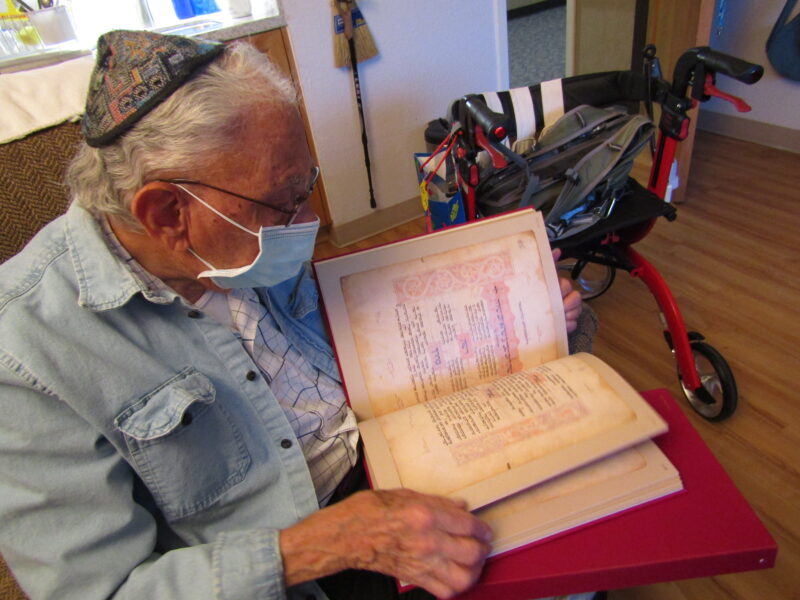“You’re too intense,” my 88-year-old friend, Mickey Greenberg, stated with the clarity of an oracle as we lunched at Butterfields the other day. It wasn’t an accusation as much as a statement of fact, and without a doubt, she is correct. I’m not exactly sure what prompted the comment. Maybe it was my declaration that if I’d been someone other than myself, I’d have ordered the Oreo cookie, s’more pancake stack because that’s what I really wanted. Or perhaps it was because she reads my blog regularly and thus can’t help but notice my obvious plethora of neuroses.
When they delivered my spinach and egg white omelet, cooked in Pam, next to her luscious pile of pancakes, she teased, “This is what an 88-year-old eats.” Then she generously lavished them with syrup and quipped, “…and this is how an 88-year-old eats them.”
We giggled about my determination to “eat healthy” and my maternal angst about … well, everything. “You really need to lighten up,” she counsels. “You worry about way too much.” It’s hard not to pay attention to someone like Mickey, whose years on the planet and amazing contributions seem to suggest a much keener understanding of how the world really works than my own limited perspective.
Mickey is one of the few people who can say things like “I remember Pearl Harbor Day,” and then recount exactly what it felt like as a 16-year-old teenager who watched her friends enlist in World War II. She talks openly about her overseas romance with the man who became her first husband. She was born Nov. 13, 1925, as Muriel, a classic name her mother chose because it couldn’t be shortened or simplified. Of course, Mickey’s aunt took one look at the newborn baby and declared that she was a “Mickey” without a doubt.
Walking through Mickey’s tastefully decorated Scottsdale home, one is struck by the photos of Mickey with renowned political figures such as LBJ, Hubert Humphrey and David Ben-Gurion. But it isn’t until we wander through the kitchen that Mickey shows me the photos that make her the proudest. The walls are adorned with photos of her six kids, their children and her great grandchildren. “Every time I look at them,” Mickey tells me, “I say to myself, ‘That couldn’t have happened without me.’ ”
Mickey is truly an extraordinary woman who’s led an extraordinary life. She held the post of editor of the Omaha Jewish News for a decade, acted as senior VP for Mercury Savings and Loan, and traveled 17 times to Israel, where she met with Yitzhak Rabin and David Ben-Gurion. She’s written books, a myriad of newspaper columns and has been published in an anthology by Nancy Rips entitled High Holiday Stories. When she shows me the invitation to Richard Nixon’s inaugural ball she jokes, “I didn’t go because I didn’t have a black tie.”
As we talk about her younger years, Mickey tells me openly, “My purpose in life was to marry a nice Jewish man and have nice Jewish kids. I had my third child at 29. My 30th birthday was my worst ever because I’d done what I was supposed to do. I figured my life was over.”
Luckily for the world and the Jewish community in particular, Mickey didn’t throw in the towel at 30. In fact, that was only the beginning of a life full of academic achievement, career accomplishments and cultural contributions.
Mickey attended Chreighton College at age 16. She recalls there being five or at most six other girls in her class. “They had a quota on women and Jews,” she recounts. In fact, she says most of her classmates had never even seen a Jew and treated her like she was from a different planet altogether. Pursuing her first job in advertising didn’t come easily either. “We don’t hire Jews,” was the response she heard as door after door closed in her face. Finally, the Irish owner of Duff advertising hired her as an entry level filing clerk. “I was the worst filer ever,” Mickey laughs. “The owner finally promoted me to copywriter just to keep me away from the filing.”
Mickey’s writing career includes copywriting, news editing, several books and creating marketing brochures. “I’ve had good luck in jobs,” she confides. Then she shows me several of the books she’s written for her family. My Book combines her memories and personal experiences with historical world events to give her family a sense of what life was like in the past and share with them the events that shaped her life. The book starts with her birthday in 1925 and recounts, “Calvin Coolidge was president, Scotch tape was invented, and the Model T Ford sedan went on sale for $350.” Mickey wrote the book for her 80th birthday. It also contains pearls of wisdom for the next generation such as “Develop your brain and don’t worry so much about your body.”
These days Mickey writes articles for the Sunday Arizona Republic “Plugged In” section. She only writes when she feels compelled by an issue or event. You’ve probably read some of her essays covering everything from Hillary’s hairdos to anti-Arpaio rants. She insists that the brevity required to keep these columns to 100 words is her greatest writing challenge ever.
Mickey was a youth advisor for NFTY (National Federation of Temple Youth) for many years and still enjoys mentoring teens when time permits. “I love teenagers,” she says. “They have such good ideas. Teens aren’t looking for advice. They need an adult who will listen and not be judgmental.”
That kind of acceptance and lack of judgment comes easily for Mickey. It was one of the gifts she inherited from her father. She explains that his unconditional love had a strong hand in shaping her beliefs and attitudes about life and relationships. “From my mother, I learned that being a good parent wasn’t the only job you had as a mother,” she says. Mickey’s mom taught her to passionately serve the community as well as her family. “I was president of the Youth Division of the Federation and The Girls Club,” Mickey says, then adds with a smile, “I was president of everything.”
Her husband, Mort, was the president of the Federation in Omaha and then became chairman of the Federation’s Community Relations Department when they moved to Phoenix. Mickey misses him every day. “But I’m not afraid of dying,” she emphasizes. “I’m afraid of living and not being able to take care of myself.”
Mickey’s fierce independence is palpable. She moves slowly around her house with the aid of a walker. At times, I feel compelled to assist her and am gently reminded to stand down. She can take care of herself. That is obvious. But she exudes a warmth and genuine kindness that make it hard not to want to help out in some way.
Mickey appreciates life and every individual who crosses her path. She tells me about a lecture she attended in October of 1971 with the great philosopher and theologian, Rabbi Abraham Joshua Heschel. In an article about Heschel, she wrote, “He sees in every human being the same uniqueness, the same creative possibilities that he finds in the marvel of every moment of life.” She then quotes Heschel directly, “There is no such thing as an average person. The root of all sin is to underestimate your own worth.” Mickey finished the piece with her experience with Rabbi Heschel, “In our brief encounter, he convinced me of my own uniqueness; the importance of my creative possibilities; the blessing which was mine, just to be alive.”
As we conclude our interview, I feel a sense of joy and gratitude for having had the time to spend with Mickey. She has made my life more meaningful and has reminded me to acknowledge my own creative spirit and unique purpose in life. The marvel she describes in her meeting with Heschel has not only been communicated to me, but somehow has infused my spirit with the awe and appreciation for life that was imparted to her more than three decades ago. I guess this is what it truly means to “pay it forward.”





